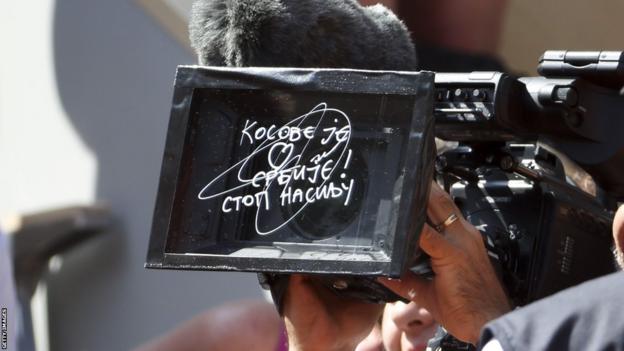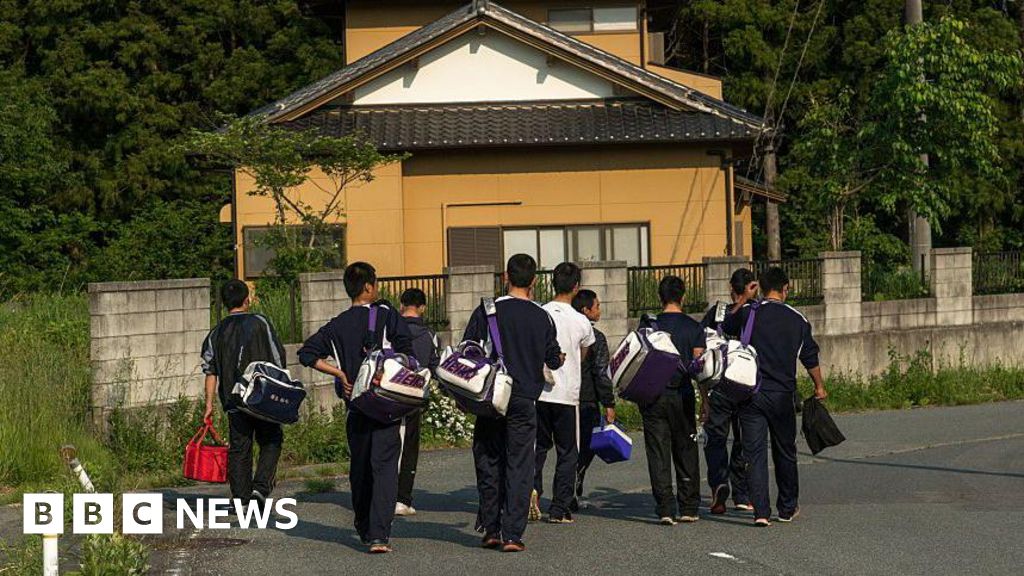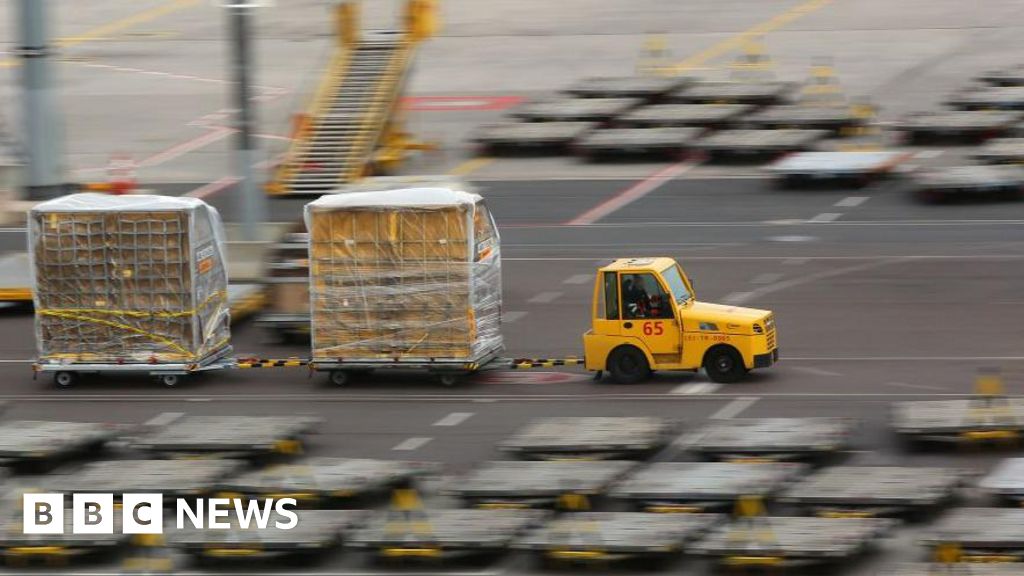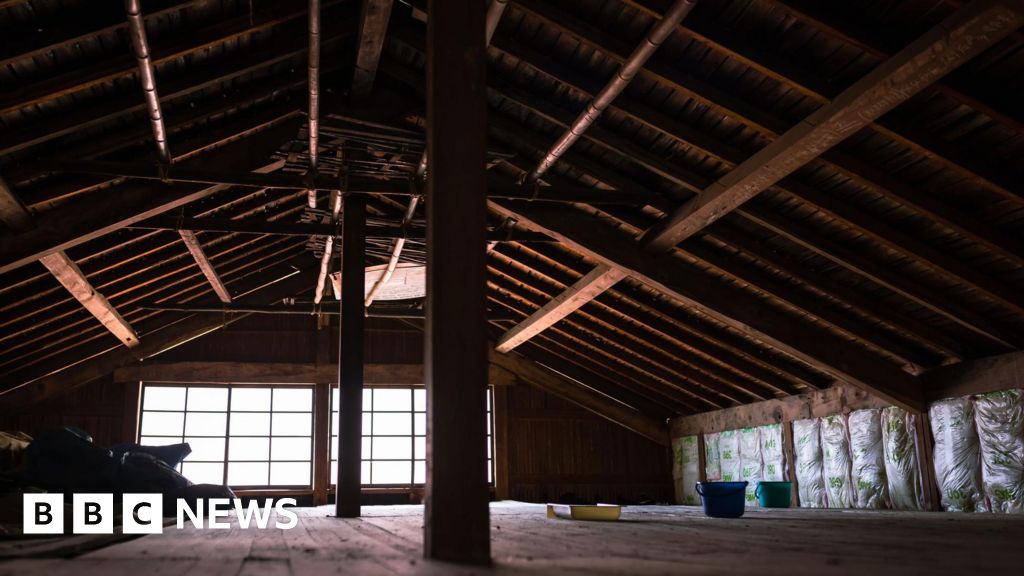ARTICLE AD BOX
 Novak Djokovic wrote the message on a camera lens after his 6-3 6-2 7-6 (7-1) win over Aleksandar Kovacevic on Tuesday
Novak Djokovic wrote the message on a camera lens after his 6-3 6-2 7-6 (7-1) win over Aleksandar Kovacevic on Tuesday| Dates: 28 May-11 June Venue: Roland Garros, Paris |
| Coverage: Live text and radio commentaries of selected matches across BBC Radio 5 Sports Extra, the BBC Sport website and app |
Novak Djokovic's political message about Kosovo at the French Open was "not appropriate" and "shouldn't happen again", says France's sports minister.
Amelie Oudea-Castera said there needs to be a "principle of neutrality for the field of play".
Serb Djokovic wrote "Kosovo is the heart of Serbia. Stop the violence" on a camera lens.
It is in reference to recent tension in Kosovo, which declared independence from Serbia in 2008.
Serbia has never recognised Kosovo's independence and there has been violence in the past days following the installation of ethnic Albanian mayors in the north of the country, with police and Nato troops clashing with Serb protesters.
"When you carry messages about defending human rights, messages that bring people together around universal values, a sportsperson is free to express them," Oudea-Castera told broadcaster France 2.
"But in this case it was a message that is very activist, that is very political. You shouldn't get involved, especially in the current circumstances, and it shouldn't happen again."
Oudea-Castera said she made a distinction for messages in support for Ukraine in the face of Russia's invasion, adding that she did not put Kosovo and Ukraine "on the same level".
That includes supporting Ukrainian player Marta Kostyuk, who was booed by the crowd after she refused to shake hands with Aryna Sabalenka of Belarus on Sunday.
Belarus is an ally of Russia and allowed troops to use its territory to launch last year's invasion of Ukraine.
"What's happening for Ukrainians on the circuit is so painful, so difficult," said Oudea-Castera.
"You can understand [Kostyuk's refusal to shake hands]. Even if you'd like there to always be fair play up to and including the handshake, but there's pain and I respect it."
Ukrainian Elina Svitolina, who has repeatedly spoken out about tennis' response to the Russian invasion, said Djokovic should be allowed to give his view.
"We are living in the free world, so why not say your opinion on something?" said Svitolina, after beating Storm Hunter in round two.
"I feel like if you stand for something, you think that this is the way, you should say."
Djokovic, 36, has defended his message, which he wrote immediately after his first-round win over Aleksandar Kovacevic on Tuesday.
Speaking to Serbian journalists the 22-time Grand Slam singles champion, whose father was born in Kosovo, said he was "against wars, violence and any kind of conflict" but that the situation Kosovo is a "precedent in international law".
"Especially as a son of a man born in Kosovo, I feel the need to give my support to our people and to the entirety of Serbia," said Djokovic.
"Kosovo is our cradle, our stronghold, centre of the most important things for our country. There are many reasons why I wrote that on the camera.
"Of course it hurts me very much as a Serb to see what is happening in Kosovo and the way our people have been practically expelled from the municipal offices, so the least I could do was this."
Kosovo Olympic authorities have asked the International Olympic Committee (IOC) to open disciplinary proceedings against Djokovic, accusing him of stirring up political tension.
"Novak Djokovic has yet again promoted the Serbian nationalists' propaganda and used the sport platform to do so," said Ismet Krasniqi, president of Kosovo's Olympic Committee.
On Tuesday the Tennis Federation of Kosovo said Djokovic's actions would "directly result" in increasing tension between the two countries.
The French Tennis Federation, which organises the French Open, said there are no rules on what players can say at Grand Slams, and that it is "understandable" that discussions about international news events took place at the tournament.
"The same rules apply to all four Grand Slams. The tournament referee and Grand Slam Supervisors ensure that these rules are complied with," read a statement.
"Messages are passed on to the teams of any players concerned by such matters."
Djokovic's message 'bound to ruffle feathers'
Guy Delauney, BBC News Balkans correspondent
"Kosovo is the heart of Serbia" might seem like an odd statement. After all, Kosovo became independent in 2008 - and its geographical location in the south west meant that, even before then, it was always on the periphery of Serbia.
But its symbolic significance remains highly important to many Serbs. The 1389 Battle of Kosovo has been mythologised as the crucial event in the forging of Serbian identity. And many of the most important sites of the Serbian Orthodox Church are within modern-day Kosovo.
Serbia is one of scores of countries which refuse to recognise Kosovo's unilateral declaration of independence. And Serbians with family ties to Kosovo are particularly keen to ensure that Serbia's policy of non-recognition continues.
It has been a turbulent month for Serbia - with mass shootings and multiple protests - and ethnic-Serbs in Kosovo. By writing his courtside message, the country's sporting icon was showing his support - but in a way which was bound to ruffle feathers.
With his marker pen scribble, Djokovic neatly illustrated the enduring complexity of the situation.

- The story of World War Two's 'bouncing bomb': In 2013, Simon Watts spoke to George 'Johnny' Johnson, the last survivor of the Dambusters squadron
- Can you tackle a Victorian exam paper? Shake off the cobwebs and give your brain a workout with this 19th-century test


 1 year ago
11
1 year ago
11








 English (US)
English (US)